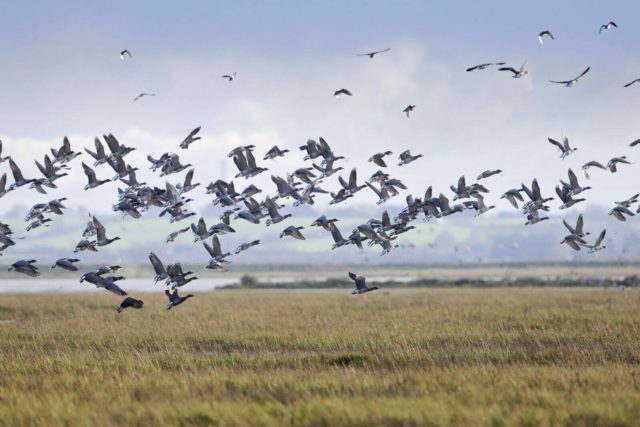A quarter of the world’s population of Dark-bellied Brent geese spend the winter months around the Essex coast, having travelled 2,500 miles from their Siberian breeding grounds. To gain a full insight into the annual migration and movements of these birds, Essex Wildlife Trust and the Southern Colour Ringing Group have launched a satellite tagging project.
The pilot ringing project launched in 2018, when 18 Dark-bellied Brent geese were ringed under a BTO license at Essex Wildlife Trust’s Blue House Farm nature reserve on the river Crouch. This was the first time the species had been ringed in Essex for over 40 years and would allow the geese to be identified and recorded during their long-haul migration to their Siberian breeding grounds.
During spring 2018, two of the birds were spotted – one on Ameland and the other on Terschelling, islands north of the Netherlands. Later there were further sightings in Hallig Hooge Lkr Nordfriesland and Langenwerder, small islands off the north coast of Germany. When the geese started returning in October 2018, several of the ringed individuals were recorded off of Shoebury and Leigh-on-Sea, before returning to Blue House Farm nature reserve in December.
To gain more comprehensive data on the location of the geese, Essex Wildlife Trust and the Southern Colour Ringing Group attached satellite tags to five geese this year. The devices are solar powered and can upload multiple data points throughout the day to log the birds’ locations.
The Dark-bellied Brent geese arrive in Essex from October and stay until March, when they head off on their epic migration once again.
Essex Wildlife Trust will be providing updates on the geese throughout the year, visit www.essexwt.org.uk for more information.




